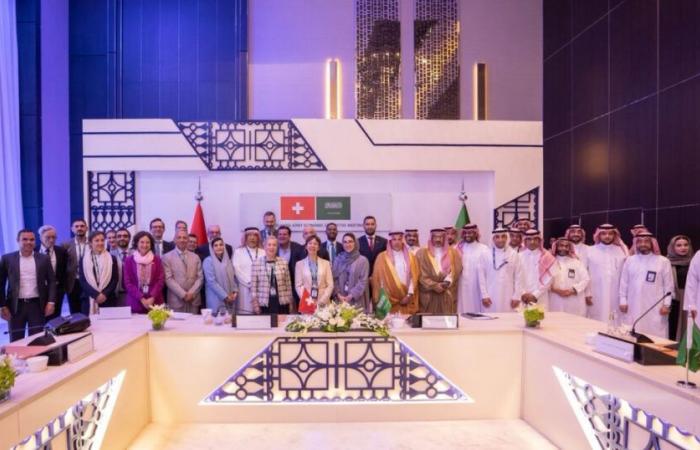On November 27 and 28, economiesuisse participated in the 14e joint economic commission in Riyadh, with a Swiss economic delegation of sixteen people. The Swiss delegation was led by Andrea Rauber Saxer, head of SECO’s Bilateral Economic Relations service center. Representatives of industry, pharma and banks were received by Sara Al-Sayed, Deputy Minister of International Relations at the Saudi Ministry of Investment (MISA).
Solution-oriented exchanges
With a trade volume of around 6.8 billion francs (including gold), Saudi Arabia is currently Switzerland’s second largest trading partner in the Middle East (after the United Arab Emirates). Swiss exports represent more than 6 billion francs of this amount. At the end of 2022, investments by Swiss companies in this country amounted to 1.41 billion francs.
Regarding the legal framework, the free trade agreement between EFTA and the Gulf Cooperation Council (GCC), whose implementation still needs to be improved, could be discussed. Furthermore, the Swiss economy and SECO have spoken out in favor of the rapid conclusion of a new investment protection agreement.
Saudi Arabia in a process of profound transformation
This 14e joint commission already constituted the sixth official exchange between Switzerland and this Gulf State in just two years – and was in some way a continuation of the official visit of Federal Councilor Guy Parmelin last February. This succession of bilateral meetings is not the result of chance: with Vision 2030, Saudi Arabia is in a process of in-depth economic transformation. Eager to reduce its dependence on oil revenues, which still represent some 40% of GDP, the country is implementing several giga-projects under the leadership of Crown Prince Mohammed bin Salman. NEOM, a city project the size of Belgium in the northwest of the country, Qiddiya, a gigantic entertainment and sports project or the Riyadh Expo 2030 are some examples. For the NEOM alone, Saudi Arabia intends to spend some 500 billion dollars, financed mainly by the Saudi sovereign fund, which weighs in at 904 billion USD (Public Investment Fund, PIF).
A dynamic market that offers opportunities and requires field knowledge and a network
Vision 2030 opens up a host of opportunities for Swiss companies, whether in infrastructure, but also in tourism, sport, entertainment, digital technologies, watchmaking and jewelry, renewable energies, the extractive industry , water supply, health or education. Among the hundred Swiss companies present in Saudi Arabia, some are already involved in the realization of Vision 2030.
Saudi Arabia is actively attracting foreign investors to co-finance its giga-projects. Faced with competition from the United Arab Emirates and Qatar, the kingdom has taken measures. The Regional Headquarters (RHQ) program therefore plans to reserve the award of public contracts to companies with their head office in Saudi Arabia. In 2024 alone, around ten Swiss companies will transfer their regional headquarters to the kingdom. Recently, Saudi Arabia also adopted an Economic Participation Policy (EPP) in connection with certain supply contracts. For these, the country requests an economic participation in Saudi Arabia of at least 35% of the value of the imported content. Swiss companies wishing to enter the Saudi market should familiarize themselves with these new rules and be careful not to underestimate their complexity.






